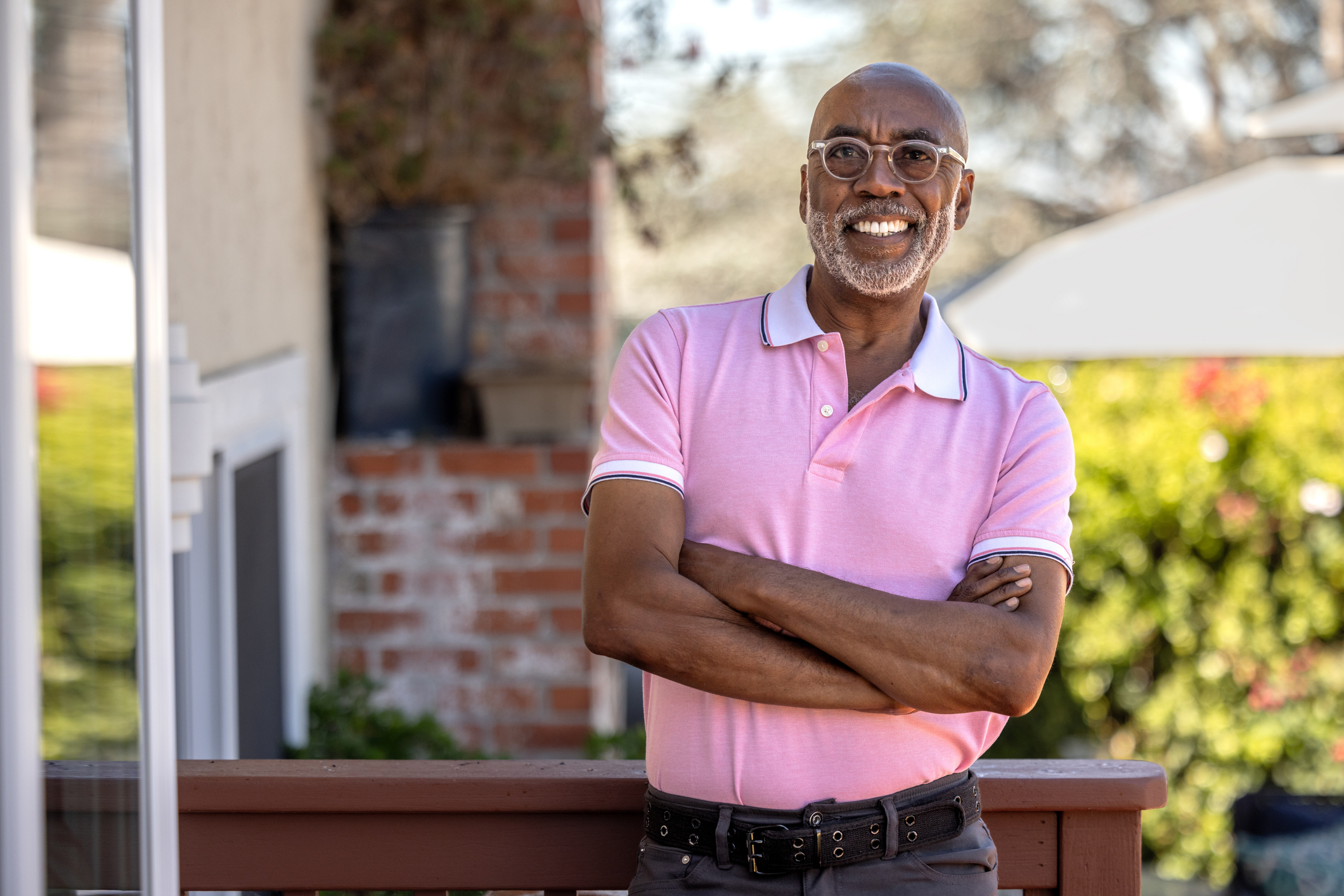My First $1 Million: Retired Tech Industry Director, 78, Delaware County, Ohio
Ever wonder how someone who's made a million dollars or more did it? Kiplinger's My First $1 Million series uncovers the answers.


Welcome to Kiplinger's My First $1 Million series, in which we hear from people who have made $1 million. They're sharing how they did it and what they're doing with it. This time, we hear from a retired publishing/information processing director of IT software development in Delaware County in Ohio.
See our earlier profiles, including a writer in New England, a literacy interventionist in Colorado, a semiretired entrepreneur in Nashville, an events industry CEO in Northern New Jersey and a retired self-employed attorney on the coast of Washington.
Each profile features one person or couple, who will always be completely anonymous to readers, answering questions to help our readers learn from their experience.

Sign up for Kiplinger’s Free E-Newsletters
Profit and prosper with the best of expert advice on investing, taxes, retirement, personal finance and more - straight to your e-mail.
Profit and prosper with the best of expert advice - straight to your e-mail.
These features are intended to provide a window into how different people build their savings — they're not intended to provide financial advice.
THE BASICS
How did you make your first $1 million?
Starting in the 1980s, I maxed out my IRA and 403(b) and never stopped. Then I started an after-tax account Invested in mutual funds and high-earning laddered CDs.
I don't know when the first million arrived, since I seldom pulled all the accounts together for a grand total until after it was a million. I felt that the less I looked, the less I would worry.

What are you doing with the money?
Most of it keeps growing since my Social Security and pension more than cover my needs. I find that things don't make me happy. Giving to charities for the less fortunate brings me joy.
Once I retired, I started a DAF (donor-advised fund) and, at 72, used two QCDs (qualified charitable distributions) for my charitable giving.
I've also taken the whole family — my children and grandchildren — on all-expenses-paid vacations in the States and to Europe.

I began gifting (my loved ones) the annual maximum in cash to cover special extras.
THE FUN STUFF
Did you do anything to celebrate?
Nope.

What is the best part of making $1 million?
Having something substantial to leave to family and having the financial ability to donate significant sums to charities and nonprofits that help the less fortunate.
Did your life change?
No. It is just a number.
Did you retire early?
I worked until I was 67 because I liked what I was doing.

LOOKING BACK
Anything you would do differently?
No.
Did you work with a financial adviser?
No. I read Kiplinger, Fortune and many books on investing and financial planning. I had a number of friends and work colleagues who used financial advisers with mixed results.
Did anyone help you early on?
My mother, a super saver (more about her below).
LOOKING AHEAD
Plans for your next $1 million?
I already have several million and plan to keep giving it away.
Any advice for others trying to make their first $1 million?
The rules are really simple — start early, max out your 401(k)/403(b), then use a Roth IRA and invest in index funds and a few stocks that you really like and have researched.
Use dollar-cost averaging and invest aggressively but not recklessly. Don't mess with calls, put options, etc. Keep it simple.

Give some away each year. Pay cash for everything but a house.
Read Kiplinger and act on some of their recommendations.
Check your accounts no more than quarterly. Don't worry or react to what the market is doing.
For major discretionary spending, walk away and come back one to two weeks later and see if the desire/need is still there.
Do you have an estate plan?
Yes. I have a will, powers of attorney, DAF and have named beneficiaries on all accounts, which are going to my family and designated charities. This keeps everything simple.
What do you wish you'd known …
Before you retired? I would have traveled a bit more earlier in retirement, when I had more energy.

When you first started saving? Nothing. My mother was a world-class saver. She taught me to:
- Save more than you spend
- Give some of each week's earnings to the church/charity
- Pay cash or don't buy it
I bought my first car at 17, but my parents required me to pay cash and have the first year's insurance before they would sign for the car.
When you first started investing? More about the different types of mutual and index funds.
If you have made $1 million or more and would like to be anonymously featured in a future My First $1 Million profile, please fill out and submit this Google Form or send an email to MyFirstMillion@futurenet.com to receive the questions. We welcome all stories that add up to $1 million or more in your accounts, although we will use discretion in which stories we choose to publish, to ensure we share a diversity of experiences. We also might want to verify that you really do have $1 million. Your answers may be edited for clarity.
RELATED CONTENT
Profit and prosper with the best of Kiplinger's advice on investing, taxes, retirement, personal finance and much more. Delivered daily. Enter your email in the box and click Sign Me Up.

As Contributed Content Editor for the Building Wealth channel on Kiplinger.com, Joyce Lamb edits articles from hundreds of financial experts about retirement-planning strategies, including estate planning, taxes, personal finance, investing, charitable giving and more. She has 32 years of editing experience in business and features news, including 15 years in the Money section at USA Today.
-
 High Mortgage Rates Are Holding My Retirement Hostage: Can I Still Downsize and Retire?
High Mortgage Rates Are Holding My Retirement Hostage: Can I Still Downsize and Retire?We ask retirement wealth advisers what to do.
-
 The Ultra-Rich Don't Always Pay Cash: Why Mark Zuckerberg Took Out a Mortgage
The Ultra-Rich Don't Always Pay Cash: Why Mark Zuckerberg Took Out a MortgageSome of the wealthiest Americans opt for mortgages as a strategic way to preserve liquidity, leverage investments and reduce tax exposure.
-
 Five Big Beautiful Bill Changes and How Wealthy Retirees Can Benefit
Five Big Beautiful Bill Changes and How Wealthy Retirees Can BenefitHere's how wealthy retirees can plan for the changes in the new tax legislation, including what it means for tax rates, the SALT cap, charitable giving, estate taxes and other deductions and credits.
-
 This is the Best CD to Get Amid Rate Uncertainty
This is the Best CD to Get Amid Rate UncertaintyThis CD helps you earn more than 4%, with quick access to your cash if you need it.
-
 Is It Time to Cut the Cord on Your Landline?
Is It Time to Cut the Cord on Your Landline?With rising costs and evolving technology, many are rethinking their home phone service. Here's how to decide if it's time to let go.
-
 Can AI Help With Your Finances?
Can AI Help With Your Finances?ChatGPT and other artificial-intelligence tools will streamline certain tasks, but don't count on them to get everything right.
-
 Neglecting Car Maintenance Could Cost You More Than a Repair, Especially in the Summer
Neglecting Car Maintenance Could Cost You More Than a Repair, Especially in the SummerWorn, underinflated tires and other degraded car parts can fail in extreme heat, causing accidents. If your employer is ignoring needed repairs on company cars, there's something employees can do.
-
 'Drivers License': A Wealth Strategist Helps Gen Z Hit the Road
'Drivers License': A Wealth Strategist Helps Gen Z Hit the RoadFrom student loan debt to a changing job market, this generation has some potholes to navigate. But with those challenges come opportunities.
-
 Financial Pros Provide a Beginner's Guide to Building Wealth in 10 Years
Financial Pros Provide a Beginner's Guide to Building Wealth in 10 YearsBuilding wealth over 10 years requires understanding your current financial situation, budgeting effectively, eliminating high-interest debt and increasing both your income and financial literacy.
-
 You're Divorced, But the Work Isn't Over: A Guide to Five Financial Tasks to Do ASAP
You're Divorced, But the Work Isn't Over: A Guide to Five Financial Tasks to Do ASAPOnce your divorce is settled, don't waste time. You've got to tie up some important loose ends or risk losing money and facing tax consequences.